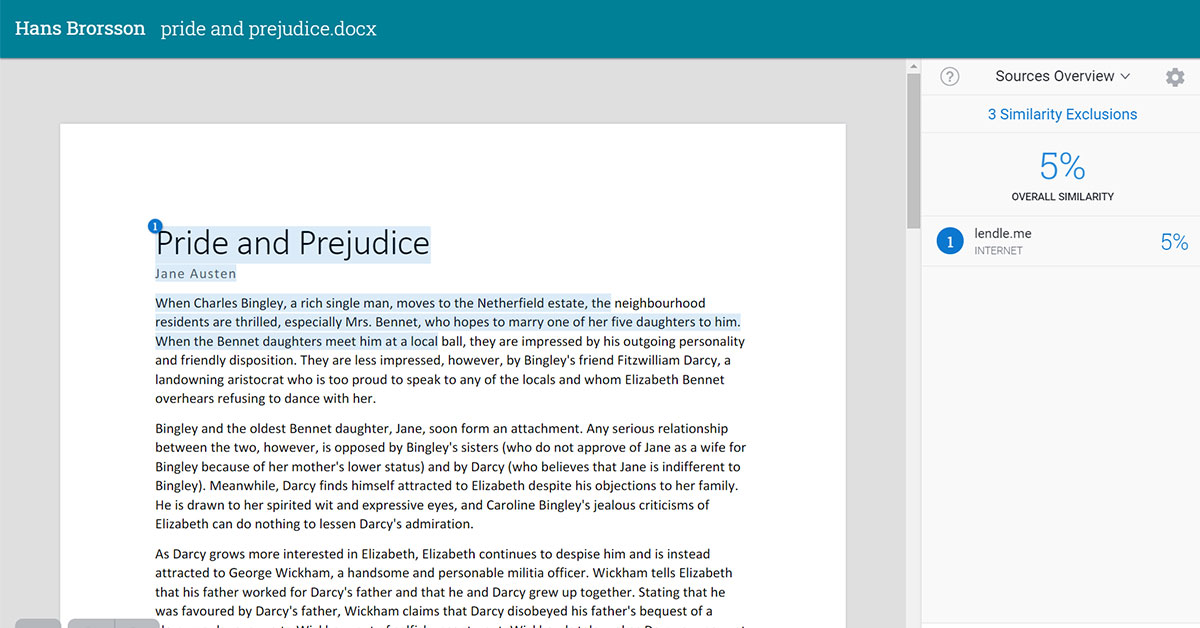But the same technologies that give us access to all of these materials can also foster organization and original thinking. Instead of looking at academic integrity as a one-dimensional problem, we need to steer the conversation from how to prevent or avoid cheating and other academic misconduct to promoting learning and unique thinking. The role of the educator will be to guide students so that they see academic integrity as empowering them as learners.
What is academic integrity? Simply put, it is the commitment to honest and original work from everyone involved in an academic environment.
Carrots, not sticks
The phrase "academic integrity" can evoke strong emotions because it is usually associated with negative behavior such as cheating and plagiarism. The educational approach has been to tell students to “avoid this”, but educationalists now see the positive value of turning the discussion to focus on “do this” instead.
Institutions and educators know that education is not just about attaining a degree but a process of learning and gaining knowledge and skills. It is therefore important to start talking about the learning process and its benefits rather than the achievement markers. Young athletes and coaches are well aware of the necessity of daily practice and good nutrition. Academic integrity training should be just as rigorous to foster good habits and a culture of academic honesty.
A student’s future success goes beyond getting the degree. Confidence in their knowledge, writing skills and ability to find, analyze, and cite the right sources will be just as important in their working lives.
Why is academic integrity important
Educational institutions can guide students towards good practice by making school expectations and standards clear from the start of the year, and helping students understand what plagiarism is and what might be considered plagiarism. Provide models, examples and activities that help students explore what will be expected in the learning process to come and its assessment.
Additionally, academic integrity needs to be framed as something that helps students rather than something that constricts them. Focus on promoting positive values such as honesty, fairness, responsibility and ethical behavior. Academic integrity will lead to analytical and critical thinking and originality that genuine research and writing promotes. Add to this mix academic fidelity and credibility. With a job market so dynamic and evolving, these baseline assets should be fundamentally central to students’ awareness of academic integrity.
Start from day one
Students are not always familiar with what plagiarism is, so start by providing the definition and key terms. Activities to model and practice summarizing, paraphrasing, as well as quoting should be included in course structures long before students practice independently.
Citations can be equally complicated. Students may know that they are accessing and utilizing the knowledge and ideas of others but they don’t always know how to properly give credit. It is essential to model and practice proper citations to define and promote academic integrity.

Sample of a plagiarism report in itslearning
Enhancing the learning and teaching process with itslearning and SimCheck
It can be challenging for educators to provide every student with frequent, meaningful, and actionable writing guidance. There is no shortage of content to cover and grading to be done but only so many days in the school year and hours in the day. Thankfully, there are tools available to itslearning users to optimize and maximize classroom potential.
SimCheck by Turnitin is a web-based platform that can support academic integrity and elevate the learning and teaching process through text similarity detection. How it works:
- SimCheck checks assignments for text matches and inadvertent copying.
- SimCheck generates a similarity score based on the matching phrases and sentences to deconstruct their origin.
As a learning tool, SimCheck is indispensable in the classroom toolbox, whether in-person, remote or hybrid learning. The SimCheck text similarity detector compares student work with more than 91 billion current and archived web pages. Each day another 22 million pages are added, keeping the tool up to date and comprehensive. This allows for the discovery of both intentional and inadvertent similarity between student submissions and an incredible amount of known works.
- The integration between itslearning and SimCheck is seamless and the learning curve for new users is minimal.
- The SimCheck interface is intuitive and accessible even from mobile devices.
- SimCheck renders written work in full with color-coded highlights for matching phrases and passages.
- SimCheck provides previews with text matches and it is easy to scroll through and see more details.
- SimCheck supports the writing process by streamlining the identification of proper source work and proper crediting. Educators don’t have to sacrifice writing opportunities and still have ample time available for teaching, mentoring and feedback.
To learn more about how SimCheck works in itslearning, read our Using SimCheck to detect plagiarism in itslearning article on our Support site.
Takeaway
The dialogue around academic integrity should no longer revolve around punishment, fault, and avoidance. Adhering to academic integrity helps students distill information and give proper credit. Educational technology (EdTech) like itslearning and SimCheck by Turnitin helps teachers and schools empower student autonomy and support the growth of independent, creative and principled thinkers.
This is the first post in a series of articles on academic integrity. The next article in this series is "4 tips to help uphold academic integrity in your class".
